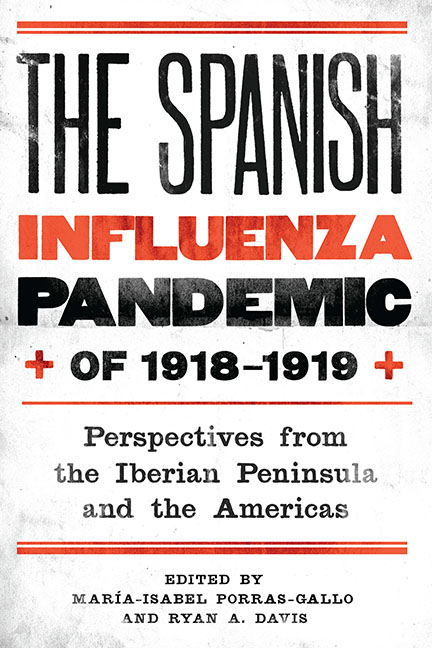 The Spanish Influenza Pandemic of 1918–1919
The Spanish Influenza Pandemic of 1918–1919 from Part Three - Interpreting the Epidemic: Sociocultural Dynamics and Perspectives
Published online by Cambridge University Press: 14 March 2018
After more than three decades of presidents affiliated with a closely knit aristocratic circle, in 1912 the Argentine Congress implemented more transparent electoral laws that allowed the Radical Party led by popular caudillo Hipólito Yrigoyen to seize political power in 1916. The leader of the Radical Party generally cultivated an austere and mysterious style, was rarely seen in public, handled a myriad of matters personally, and believed in old-fashioned ways. He and his cadres consistently ignored criticisms expressed by the press and the opposition. At a time in which the Argentine press vociferously demanded that the country abandon neutrality and join the Allied Powers, the Yrigoyen administration did not even flinch. In October 1918, however, the particulars of World War I in the Argentine press started to share its prominence with accounts of the flu epidemic in Spain.
Throughout October and early November the Argentine press would forge a series of narratives, first, in response to the spread of the flu in Spain and Argentina's neighboring countries and, second, in response to the reaction of Yrigoyen's administration in the face of the local development of the disease. As the spread of the flu in the beginning of October was negligible, the Argentine press began its coverage by jesting about the importance of the disease. When the flu started to take its toll in neighboring countries, however, the jokes receded, and the Argentine press started to suspect that the aparent minimal impact of the disease in Argentina owed its existence more to the lack of verifiable statistics than to pure and simple good luck. As the dearth of reliable information and germane measures on the government's part seemed to remain unchanged, the reaction began to mount in major newspapers and magazines. If the purpose of this course of action was to avoid public alarm, the press denounced the fallacy of following the trail of fear instead of assessing the true impact of the flu in the country. But when the government decided to undertake multiple measures, the press accused the Yrigoyen administration of fueling public alarm without having any reliable information at hand.
To save this book to your Kindle, first ensure [email protected] is added to your Approved Personal Document E-mail List under your Personal Document Settings on the Manage Your Content and Devices page of your Amazon account. Then enter the ‘name’ part of your Kindle email address below. Find out more about saving to your Kindle.
Note you can select to save to either the @free.kindle.com or @kindle.com variations. ‘@free.kindle.com’ emails are free but can only be saved to your device when it is connected to wi-fi. ‘@kindle.com’ emails can be delivered even when you are not connected to wi-fi, but note that service fees apply.
Find out more about the Kindle Personal Document Service.
To save content items to your account, please confirm that you agree to abide by our usage policies. If this is the first time you use this feature, you will be asked to authorise Cambridge Core to connect with your account. Find out more about saving content to Dropbox.
To save content items to your account, please confirm that you agree to abide by our usage policies. If this is the first time you use this feature, you will be asked to authorise Cambridge Core to connect with your account. Find out more about saving content to Google Drive.